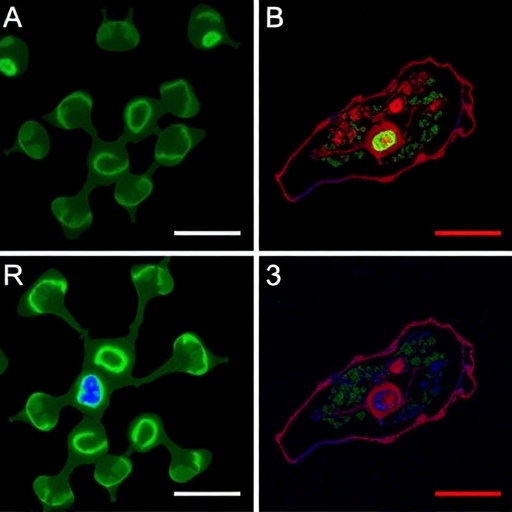
In a landmark update set to transform the landscape of obesity management, the 2025 Clinical Practice Guideline for pharmacotherapy in adults has been meticulously revised, embodying the latest evidence-based advancements that emphasize personalized treatment strategies. Spearheaded by Dr. Sue D. Pedersen, a leading endocrinologist and obesity medicine expert based in Calgary, this guideline moves beyond the traditional reliance on body mass index (BMI) and advocates for a multidimensional assessment of obesity, incorporating metrics such as waist circumference, waist-to-hip ratio, and waist-to-height ratio, adjusted for sex and ethnicity. This recalibrated approach underscores a paradigm shift in clinical practice, recognizing obesity not merely as a matter of weight but a complex, multifactorial condition affecting metabolic, mechanical, and psychological health domains.
Central to this updated guidance is the recognition that pharmacotherapy offers more than weight loss alone; it represents a critical pillar in improving the holistic health of people living with obesity. Dr. Pedersen articulates that the primary therapeutic goal is to enhance metabolic function, alleviate mechanical strain, and improve mental well-being, all tailored to the unique health objectives and life circumstances of each individual. By doing so, the guideline challenges outdated paradigms that have traditionally prioritized superficial weight loss metrics and neglect the broader functional and quality-of-life outcomes essential to sustainable care.
The guideline introduces six new recommendations alongside seven modified directives which reflect emerging evidence since its prior iterations in 2020 and 2022. This latest iteration firmly positions obesity pharmacotherapy as a safe, effective, and indispensable component of long-term obesity treatment regimens. It is presented as one of three foundational pillars — alongside behavioural and psychological interventions and surgical options — that should be deliberately integrated into individualized treatment plans. Such an approach calls for a nuanced appreciation of patient values, preferences, and clinical complexities, urging clinicians to emphasize sustained management rather than episodic care.
.adsslot_G0HyQLmpeB{width:728px !important;height:90px !important;}
@media(max-width:1199px){ .adsslot_G0HyQLmpeB{width:468px !important;height:60px !important;}
}
@media(max-width:767px){ .adsslot_G0HyQLmpeB{width:320px !important;height:50px !important;}
}
ADVERTISEMENT
Notably, this update incorporates the latest pharmaceutical agents, including tirzepatide and setmelanotide, drugs that have generated considerable interest within endocrinology and metabolic circles for their novel mechanisms of action. Tirzepatide, a dual glucose-dependent insulinotropic polypeptide (GIP) and glucagon-like peptide-1 (GLP-1) receptor agonist, has been shown to elicit significant improvements in glucose homeostasis and weight reduction. Setmelanotide, targeting the melanocortin-4 receptor (MC4R) pathway, addresses specific genetic and metabolic causes of obesity, marking a breakthrough in precision medicine for select patient populations. These inclusions reflect the continuous evolution of pharmacologic options, offering clinicians expanded tools to tailor interventions more effectively.
Beyond pharmacologic updates, the guideline also advances recommendations for managing a spectrum of obesity-related complications. These include atherosclerotic cardiovascular disease, heart failure with preserved ejection fraction (HFpEF), osteoarthritis, and other comorbidities that compound the burden of obesity. Recognizing these intersections underscores the necessity of integrating obesity pharmacotherapy into comprehensive chronic disease management frameworks. This holistic perspective fosters improved patient outcomes by targeting the pathophysiologic complexities intrinsic to obesity and its associated conditions.
Importantly, the guideline cautions clinicians against the use of compounded obesity medications, citing concerns about inconsistent content, safety profiles, efficacy standards, and overall quality control. This stance reflects a growing awareness within the medical community regarding the risks posed by unregulated or inadequately tested pharmacologic preparations. By discouraging these practices, the guideline aims to safeguard patients and uphold rigorous standards of care.
Despite the robust evidence supporting pharmacotherapy, the guideline highlights systemic barriers impeding widespread access in Canada. Notably, Alberta remains the only province recognizing obesity as a chronic disease, a designation critical to unlocking insurance coverage and broad therapeutic access. The pervasive issues of stigma, prohibitive costs, and limited drug plan coverage continue to thwart equitable treatment availability. This systemic inertia underscores the pressing need for policy reforms and broad-based advocacy to dismantle structural obstacles in obesity care.
The authors emphasize that the failure to recognize obesity as a chronic disease by public and private healthcare payers, governmental health systems, media, and society contributes to a cascade of limitations, severely restricting patient access to effective treatments. This “trickle-down” effect perpetuates disparities and undermines public health efforts. Consequently, the guideline not only serves as a clinical roadmap but also implicitly calls for cultural and systemic shifts essential to optimized treatment paradigms.
The full clinical guideline, along with ancillary resources designed to support healthcare professionals, is accessible via the Obesity Canada website, providing comprehensive tools for implementation in diverse clinical settings. The guideline’s publication in the Canadian Medical Association Journal on August 11, 2025, ensures its wide dissemination within the medical community, reinforcing its status as a pivotal educational and practical resource.
Through this comprehensive update, obesity pharmacotherapy emerges as a cornerstone of an integrated, patient-centered chronic disease management model that prioritizes sustained health improvements and personalized therapeutic goals. The embrace of novel agents, multidimensional assessments, and evidence-based complication management reflects a maturing field responsive to complexities of obesity as a systemic illness.
As healthcare systems globally grapple with escalating obesity prevalence and its disproportionate health impacts, this guideline offers a timely, scientifically rigorous framework that advocates for equity, innovation, and long-term strategy. It embodies a critical evolution toward recognizing obesity as a multifaceted chronic condition necessitating tailored, continuous, multidimensional interventions.
In conclusion, the 2025 obesity pharmacotherapy guideline update represents a significant stride forward in clinical practice, underscoring that effective obesity management transcends weight reduction alone. By advocating for individualized care plans harnessing state-of-the-art pharmacological innovations alongside psychosocial and surgical modalities, it delineates a holistic, sustainable care trajectory responsive to the diverse needs of people living with obesity.
Subject of Research: Pharmacotherapy for obesity management in adults
Article Title: Pharmacotherapy for obesity management in adults: 2025 clinical practice guideline update
News Publication Date: 11-Aug-2025
Web References:
Canadian Medical Association Journal article: http://dx.doi.org/10.1503/cmaj.250502
Obesity Canada clinical practice guidelines: https://obesitycanada.ca/healthcare-professionals/adult-clinical-practice-guideline/
Keywords: Obesity, pharmacotherapy, tirzepatide, setmelanotide, clinical practice guideline, metabolic disorders, chronic disease, personalized medicine
Tags: clinical practice updates on obesityDr. Sue D. Pedersen obesity guidelinesevidence-based obesity treatment advancementsholistic health in obesity managementimproving metabolic function in obesitymultidimensional assessment of obesityobesity as a multifactorial conditionobesity management pharmacotherapy guidelinesobesity treatment tailored to individual needspersonalized treatment strategies for obesitypsychological health and obesity treatmentwaist circumference and obesity metrics





